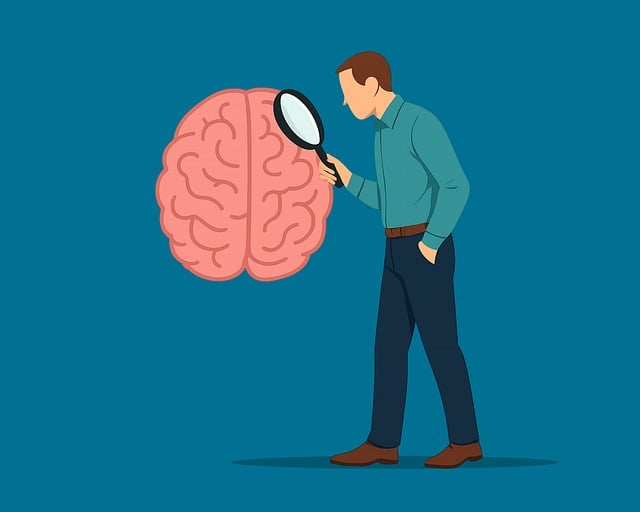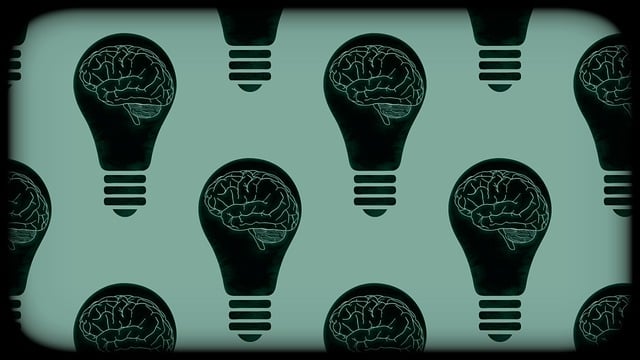Mental wellness programs designed for young adults seeking therapy for young adults bilingual needs must address cultural identity, language barriers, and access to appropriate services. Incorporating culturally sensitive therapy, anxiety relief, burnout prevention, and emotional intelligence-focused strategies improves interpersonal relationships and overall well-being. Evaluations use diverse tools including self-report questionnaires, group observations, and qualitative methods like mental wellness podcasts in native languages to capture both subjective and objective improvements. Quantitative data analysis tracks changes in symptoms, attitudes, behaviors, adherence rates, and client satisfaction. Iterative evaluation involves regular client feedback and refinement of interventions for personalized treatments, fostering open communication and adaptive practices leading to more effective bilingual therapy outcomes.
Mental wellness programs tailored for young adults in bilingual communities are gaining recognition as essential tools for fostering resilience. This article explores comprehensive evaluation methods to assess their impact, from understanding participant needs and qualitative insights through to quantitative data analysis and continuous improvement strategies. Discover how these approaches empower therapists to tailor interventions, ensuring cultural sensitivity and optimal therapy outcomes for young adults navigating both linguistic and psychological landscapes.
- Understanding Mental Wellness Programs for Young Adults in Bilingual Communities
- Assessment Tools for Evaluating Program Effectiveness
- Qualitative Evaluation Methods: Voices of Participants
- Quantitative Data Analysis: Measuring Impact and Success
- Continuous Improvement: Iterative Evaluation for Optimal Therapy Outcomes
Understanding Mental Wellness Programs for Young Adults in Bilingual Communities

Mental wellness programs designed for young adults in bilingual communities require a nuanced approach to effectively cater to this diverse demographic. Bilingual individuals often face unique challenges related to cultural identity, language barriers, and access to mental health services tailored to their specific needs. Understanding these factors is crucial when evaluating the success of such programs.
These initiatives should focus on providing therapy for young adults in bilingual settings, incorporating culturally sensitive practices and addressing issues like anxiety relief and burnout prevention. Furthermore, fostering emotional intelligence through bilingual-specific activities can enhance participants’ ability to navigate their cultural identity and interpersonal relationships. By integrating these strategies, mental wellness programs can create a supportive environment, improve access to care, and ultimately positively impact the emotional well-being of young adults in these communities.
Assessment Tools for Evaluating Program Effectiveness

When evaluating the effectiveness of a mental wellness program, especially one catering to young adults with a focus on bilingual populations, diverse assessment tools are essential. These tools should capture both subjective and objective measures of participants’ mental health improvements. Self-report questionnaires are widely used; these can assess changes in symptoms, mood, anxiety levels, and overall psychological well-being. For instance, the Patient Health Questionnaire (PHQ-9) is a commonly employed tool to gauge depression severity. Additionally, for bilingual programs, culturally adapted assessments that consider language preferences and sensitivity are crucial to ensuring accurate insights.
Beyond individual reports, group evaluations and observational methods offer valuable perspectives. This could involve assessing group dynamics, engagement in therapy sessions, and the overall atmosphere of support. Resilience building, self-care routine development, and compassion cultivation practices—key components of many mental wellness programs—can be observed and measured through structured interviews or focus groups. These multiple assessment strategies allow for a comprehensive understanding of program success, ensuring that improvements are not only subjective but also tangible and measurable.
Qualitative Evaluation Methods: Voices of Participants

In evaluating mental wellness programs, particularly those designed for young adults, qualitative methods offer a powerful lens to understand participant experiences and perspectives. One such method is gathering and analyzing participant voices through interviews or focus groups. This approach allows individuals who have undergone therapy, mental wellness coaching, or self-care practices to share their stories, insights, and reflections in their own words. By listening to their voices, researchers and practitioners gain valuable insights into the program’s impact, effectiveness, and areas for improvement from a consumer perspective.
For bilingual populations, ensuring accessibility and cultural sensitivity during qualitative evaluations is paramount. Mental wellness podcast series production can serve as an effective tool to reach and engage participants who prefer or are most comfortable communicating in their native language. This method not only facilitates genuine expression but also captures the nuances of experiences within specific cultural contexts. Incorporating self-care practices tailored to diverse communities ensures that evaluation methods themselves contribute to inclusive mental wellness coaching program development.
Quantitative Data Analysis: Measuring Impact and Success

Quantitative data analysis plays a pivotal role in evaluating mental wellness programs, especially those tailored for young adults seeking therapy in a bilingual setting. By employing methods such as surveys and statistical tests, researchers can assess the impact and success of interventions. This involves measuring changes in symptoms, attitudes, and behaviors before and after program participation using standardized tools. For instance, self-awareness exercises designed to promote cultural sensitivity in mental healthcare practice can be evaluated by comparing participants’ responses on cultural competence scales.
The analysis also extends to examining program adherence rates, treatment completion, and client satisfaction scores. These quantitative metrics provide concrete evidence of the program’s effectiveness in addressing specific mental health concerns among young adults. Moreover, integrating these data with Mental Health Policy Analysis and Advocacy ensures that the program’s success is not only measured but also communicated effectively to stakeholders, guiding future policy decisions and resource allocation for culturally responsive therapy for young adults.
Continuous Improvement: Iterative Evaluation for Optimal Therapy Outcomes

Mental wellness programs for young adults, especially those offering bilingual therapy, should adopt an iterative evaluation approach to ensure continuous improvement. This means regularly assessing and refining interventions based on client feedback and outcomes data. By doing so, therapists can tailor their methods to best support individual needs, enhancing the effectiveness of treatments like Social Skills Training and Mood Management.
Iterative evaluation allows for a dynamic process where programs address emerging challenges in stress management and incorporate successful strategies. This cyclical approach fosters an optimal therapy environment, encouraging open communication and adaptive practices. Through regular reassessments, therapists can identify what works best for different clients, ultimately leading to more satisfying and successful mental wellness outcomes.
Evaluating mental wellness programs tailored for young adults in bilingual communities is a multifaceted process. By combining qualitative insights from participant experiences and quantitative data analysis, we can gain a comprehensive understanding of program effectiveness. This iterative evaluation approach ensures continuous improvement, fostering optimal therapy outcomes for this unique demographic. Implementing such methods allows us to tailor interventions, address cultural nuances, and ultimately improve mental health support for bilingual young adults. Effective evaluation is key to unlocking the success of tailored therapy programs in diverse communities.














